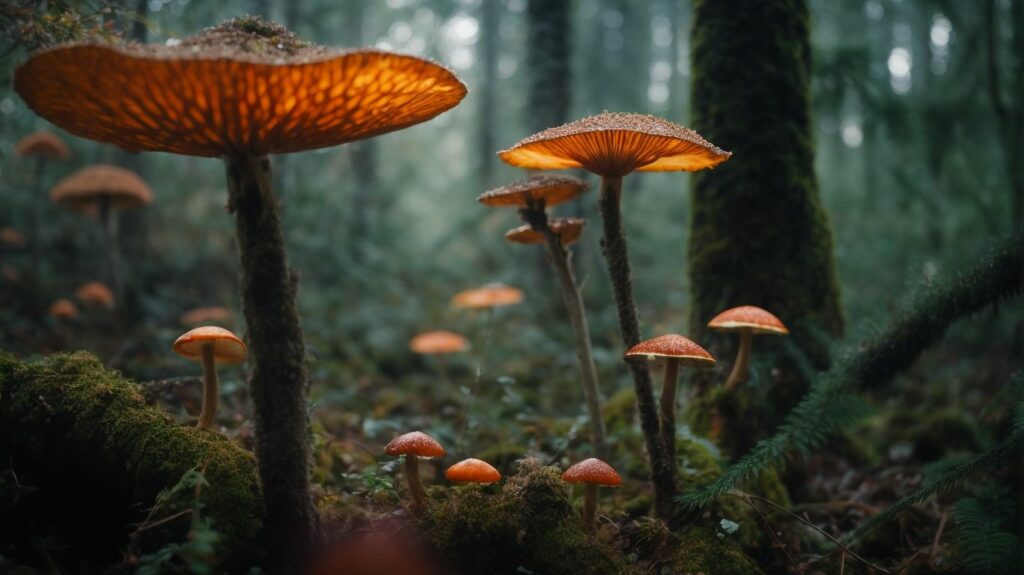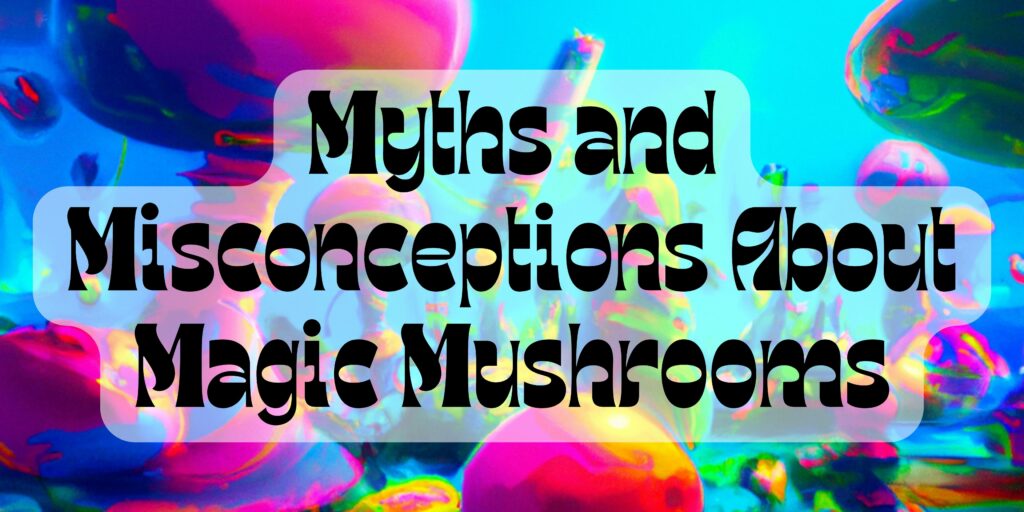Are you curious about the effects of shrooms? This article will delve into the fascinating world of magic mushrooms and their impact on the human mind. With the increasing popularity of psychedelics, it is important to understand the potential benefits and risks associated with shrooms. Let’s explore the mind-altering effects of these natural substances.
What Are Shrooms?
Shrooms, also known as magic mushrooms, are a type of psychedelic drug containing psilocybin. These fungi can be found in specific regions around the world. People often consume shrooms for their hallucinogenic properties, which can cause altered perceptions, visual distortions, and intense emotional experiences. They have a rich history of use in various cultures for spiritual and therapeutic purposes. However, it is essential to note that shrooms can also pose risks, such as potential psychological effects and adverse reactions. Therefore, it is crucial to approach their use with caution and under the guidance of a trained professional.
How Do Shrooms Affect the Brain?
The effects of shrooms on the brain can be profound. Here are some steps to understand how shrooms affect the brain:
- Step 1: Consumption: When ingested, psilocybin, the active ingredient in shrooms, is metabolized into psilocin.
- Step 2: Serotonin receptors: Psilocin binds to serotonin receptors in the brain, specifically the 5-HT2A receptors.
- Step 3: Neural communication: This binding alters neural communication patterns, resulting in changes in perception, mood, and cognition.
- Step 4: Default mode network: Psilocybin disrupts the default mode network, which is responsible for self-reflection and introspection.
- Step 5: Altered state of consciousness: These changes lead to an altered state of consciousness characterized by visual hallucinations, emotional experiences, and a sense of interconnectedness.
What Are the Active Ingredients in Shrooms?
Shrooms contain two active ingredients: psilocybin and psilocin. These naturally occurring psychedelic compounds are found in certain types of mushrooms. When consumed, psilocybin is converted into psilocin, which then binds to serotonin receptors in the brain, resulting in altered perception, mood, and cognition. These compounds are responsible for the hallucinogenic effects of shrooms. It should be noted that the potency of these active ingredients can vary depending on the specific mushroom species and its growing conditions. Additionally, the effects experienced can be greatly influenced by the dosage and individual sensitivity.
Hold on tight, because shrooms will take you on a wild ride through your mind and body.
What Are the Short-Term Effects of Shrooms?
The short-term effects of shrooms can vary depending on various factors, including dosage, individual tolerance, and the environment in which they are consumed. Some common short-term effects include:
- Changes in perception of time
- Alterations in mood and emotions
- Heightened sensory experiences
- Hallucinations
Physical effects such as increased heart rate, dilated pupils, and changes in coordination may also occur. It is important to note that the effects of shrooms are unpredictable and can differ from person to person. To minimize potential risks, it is recommended to use shrooms in a safe and controlled environment with trusted individuals.
What Are the Physical Effects of Shrooms?
The physical effects of shrooms can vary from person to person, but there are some common experiences. These include dilated pupils, increased heart rate, and blood pressure, elevated body temperature, and changes in sensory perception. Some people may also experience nausea and vomiting. It’s important to note that these effects are temporary and typically subside as the drug wears off. It’s crucial to consume shrooms in a safe environment and be aware of potential risks, such as allergic reactions or interactions with other medications. If you have any concerns or questions, it’s best to consult with a healthcare professional to understand the physical effects of shrooms.
What Are the Psychological Effects of Shrooms?
The psychological effects of shrooms can vary greatly depending on the individual. These effects may include altered perception of time, space, and senses, as well as intense emotions like euphoria or anxiety. Some users may even have spiritual or mystical experiences. These effects are caused by the interaction of psilocybin, the active ingredient in shrooms, with serotonin receptors in the brain. However, it is important to remember that these effects can be unpredictable and may vary from person to person. Therefore, it is crucial to carefully consider the psychological effects and only use shrooms in a safe and controlled environment.
Just like a bad relationship, the long-term effects of shrooms can be unpredictable and potentially harmful.
What Are the Long-Term Effects of Shrooms?
While the short-term effects of shrooms are well-known, the long-term effects are not fully understood. According to research, these effects can vary depending on factors such as dosage, frequency of use, and individual susceptibility. Some potential long-term effects may include persistent psychosis, flashbacks, and an increased risk of mental health issues. However, it is important to note that further research is necessary to fully comprehend the long-term effects of shrooms.
True story: I once knew someone who regularly used shrooms in their youth. They experienced occasional flashbacks and struggled with anxiety and depression later in life. Although it is difficult to determine the sole cause of these long-term effects, it serves as a reminder of the potential risks associated with shroom use.
Are There Any Negative Long-Term Effects?
Long-term use of shrooms can have detrimental effects on mental health. Those who use shrooms chronically may become psychologically dependent and may experience flashbacks or hallucinogen persisting perception disorder. They may also be at risk of developing HPPD, a condition characterized by recurring visual disturbances. Additionally, prolonged shroom use can trigger or worsen underlying mental health conditions such as depression, anxiety, and psychosis.
It is crucial to approach shroom use with caution and seek professional help if any negative effects are experienced. If you or someone you know is struggling with the negative long-term effects of shrooms, it is advisable to reach out to a healthcare professional or seek support from addiction recovery programs.
Are There Any Positive Long-Term Effects?
While there are potential risks and negative long-term effects associated with shroom use, some individuals have reported positive long-term effects. These can include improved mood, increased creativity, enhanced spirituality, and a greater sense of well-being.
Some studies suggest that psilocybin, the active ingredient in shrooms, may have therapeutic benefits for mental health conditions such as depression, anxiety, and PTSD. However, further research is needed to fully understand the long-term effects and potential benefits of shroom use.
It is important to note that individual experiences may vary, and shrooms should only be used under medical supervision, if at all.
Can Shrooms Be Used for Medical Purposes?
Shrooms, also known as magic mushrooms, have been extensively studied for their potential medical uses. Current research suggests that the active ingredient, psilocybin, may have therapeutic effects on various mental health conditions, including depression, anxiety, and PTSD. However, further research is necessary to fully understand both the benefits and risks associated with using shrooms for medical purposes. It is important to note that the use of shrooms for medical reasons is currently illegal in the majority of countries. If you are considering using shrooms for medical purposes, it is crucial to consult with a qualified healthcare professional. They can provide expert guidance and discuss alternative treatment options that are both legal and evidence-based.
What Are the Potential Benefits of Shrooms for Mental Health?
Shrooms have been found to have potential benefits for mental health. According to research, the active ingredient in shrooms, psilocybin, may be helpful in treating conditions like depression, anxiety, and PTSD. It is believed to work by promoting neural plasticity and reducing activity in the default mode network, which is associated with self-reflection and rumination. Studies have shown positive outcomes, including improved mood, increased empathy, and enhanced well-being. However, it is important to note that shrooms should only be used under medical supervision and in controlled settings due to their hallucinogenic properties. Further research is necessary to fully understand their therapeutic potential.
What Are the Risks of Using Shrooms for Medical Purposes?
Using shrooms for medical purposes comes with certain risks that must be carefully considered. These potential risks include:
- Negative psychological effects: Shrooms can cause intense hallucinations and altered perceptions, which may result in anxiety, paranoia, or panic attacks.
- Risk of a bad trip: Shrooms can amplify existing mental health conditions or trigger new ones, such as psychosis or persistent hallucinogen perception disorder.
- Lack of regulation: The potency and composition of shrooms can vary greatly, making it challenging to establish consistent dosages and increasing the likelihood of adverse reactions.
- Potential for misuse or addiction: Due to their psychedelic effects, shrooms have the potential for misuse or dependency, especially when used for self-medication without professional guidance.
Pro-tip: Before considering shrooms for medical purposes, it is essential to consult with a qualified healthcare professional who can assess the potential risks and benefits for your specific condition.
How to Safely Consume Shrooms?
To safely consume shrooms, follow these steps:
- Research: Gather information about the type of mushrooms you plan to consume, including their effects and potential risks.
- Set and Setting: Choose a comfortable and safe environment where you feel relaxed and at ease.
- Start Low and Go Slow: Begin with a small dose and gradually increase if desired effects are not achieved.
- Stay Hydrated: Drink plenty of water to stay hydrated throughout the experience.
- Have a Trip Sitter: It’s recommended to have a trusted friend present to provide support and assistance if needed.
Remember, everyone’s experience with shrooms is unique. It’s important to prioritize your safety and well-being while exploring the psychedelic effects. If you have any concerns or questions, consult with a knowledgeable professional in the field. Happy and safe journeys!
What Precautions Should Be Taken?
When consuming shrooms, it is important to take precautions to ensure a safe experience. Some precautions to consider include:
- Research: Educate yourself about the specific type of mushroom you plan to consume and its effects.
- Set and setting: Choose a comfortable and familiar environment where you feel safe and relaxed. Surround yourself with trusted individuals who can provide support if needed.
- Start low, go slow: Begin with a low dosage to gauge your sensitivity and tolerance. Gradually increase the dosage if desired.
- Stay hydrated: Drink plenty of water throughout the experience to prevent dehydration.
- Avoid mixing substances: Do not combine shrooms with other drugs or alcohol, as this can lead to unpredictable and potentially dangerous effects.
Remember, everyone reacts differently to shrooms, so it’s important to prioritize your safety and well-being.
What Are the Different Methods of Consuming Shrooms?
To consume shrooms, there are various methods available. These include:
- Eating them raw: This is the most straightforward method, where you simply chew and swallow the shrooms.
- Making tea: By steeping the shrooms in hot water, you can create a mushroom-infused beverage.
- Capsules: Some people prefer to encapsulate powdered shrooms for easier consumption.
- Mixing with food: Shrooms can be added to meals or incorporated into recipes to mask their taste.
- Lemon tek: This method involves soaking shrooms in lemon juice to enhance their effects.
Remember, when consuming shrooms, it is crucial to be mindful of dosage and to take precautions to ensure a safe and positive experience.
Fact: Did you know that mushrooms have been used for centuries in spiritual and religious ceremonies?
Frequently Asked Questions
What are the main effects of shrooms?
Shrooms, also known as magic mushrooms, can have a range of effects depending on the individual and the dose. Some of the most common effects include altered perception, changes in mood, and hallucinations.
Can shrooms have a negative impact on mental health?
While some people may have positive experiences with shrooms, it is important to note that they can also have a negative impact on mental health. Shrooms can worsen pre-existing mental health conditions and may also cause anxiety, paranoia, and delusions.
How long do the effects of shrooms last?
The effects of shrooms can last from 4-6 hours, although some individuals may experience a longer or shorter trip. The intensity of the effects may also vary throughout the trip.
What are the potential risks of consuming shrooms?
Shrooms can pose potential risks, especially for those with underlying health conditions. These risks include increased heart rate and blood pressure, potential for allergic reactions, and potential for accidental poisoning if consuming a toxic type of mushroom.
Can shrooms be addictive?
Shrooms are not considered physically addictive, meaning that individuals do not experience withdrawal symptoms when they stop using them. However, they can be psychologically addictive, as some people may crave the intense experience and escape from reality that shrooms can provide.
Are there any potential long-term effects of shroom use?
The long-term effects of shroom use are still being studied, but some potential risks include flashbacks, persistent changes in perception and mood, and possible damage to the brain and other organs. It is important to use shrooms responsibly and in moderation to minimize these risks.




